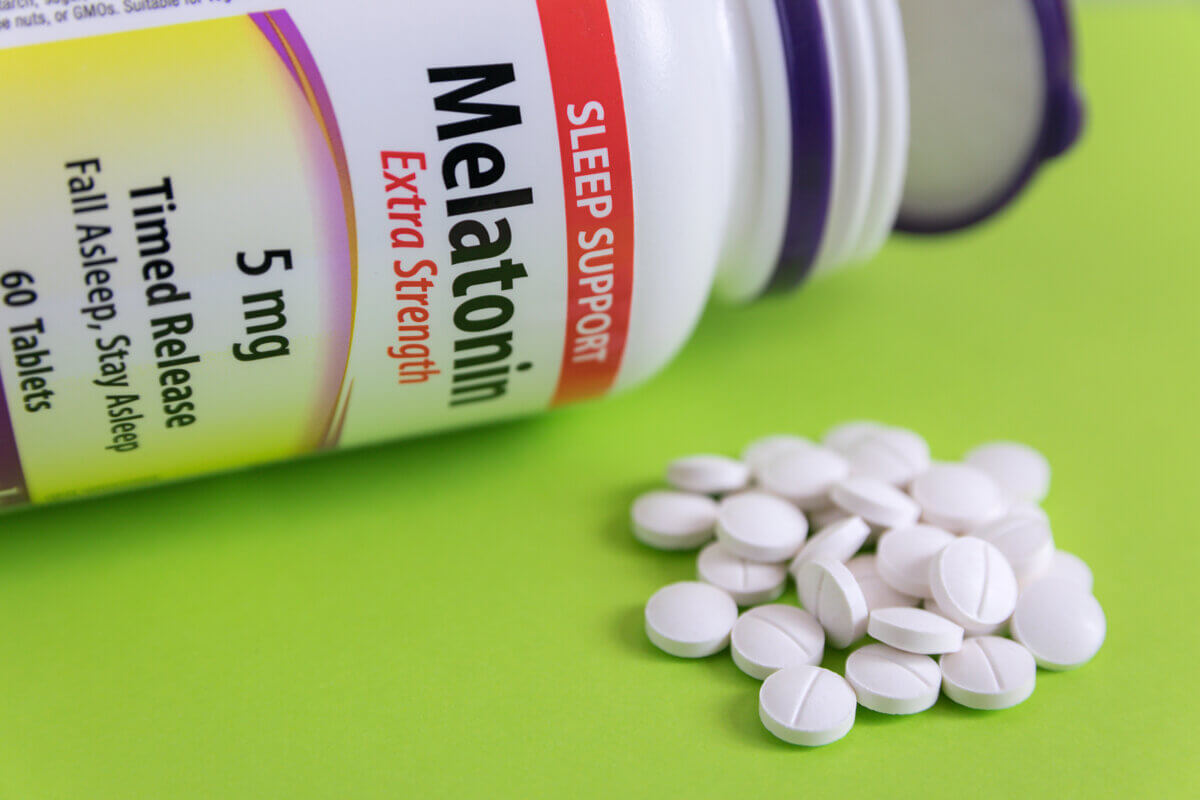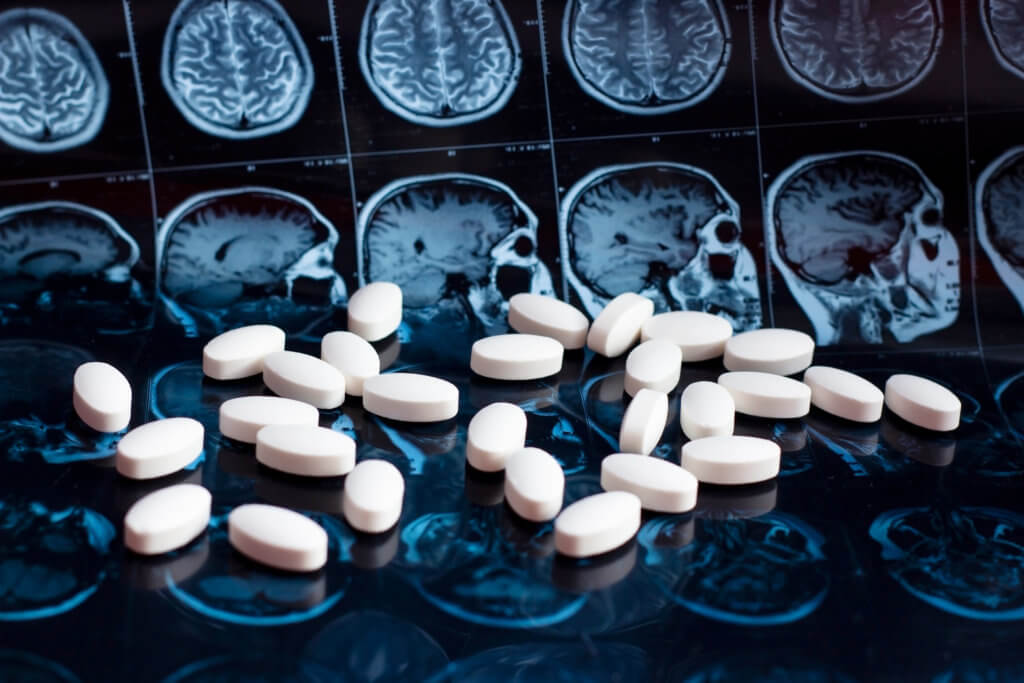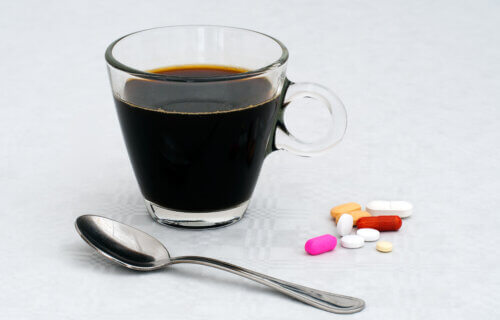The definitive verdict is in – coffee is good for your health. However, countless people take medications and that combination could be very concerning from a medical point of view.
On a positive note, coffee contains caffeine, a performance-enhancing stimulant that augments alertness. Studies even show it lessens the risk of developing Parkinson’s and Alzheimer’s diseases. The antioxidants in coffee may also reduce inflammation and have a protective effect on the liver.
The caffeine in coffee can elevate mood and the beverage has a laxative effect. It may decrease the risk for the development of Type 2 diabetes and depression, as well as support weight management. Three cups of coffee per day is the recommended amount.
There is reason for caution, however, if you take any of the medications that can adversely interact with coffee. Here are 10 drugs that could cause problems if you take with while drinking coffee:
Thyroid medication
People with a history of thyroid disease may be under treatment with replacement thyroid medication, such as levothyroxine. Studies show that coffee can reduce the absorption of a thyroid drug by more than 50 percent, making it less effective.
Diabetes medication
Mixing your coffee with sugar or milk can trigger a spike in blood sugar, affecting how well your diabetes medication works. Anything with caffeine can raise your insulin and blood sugar levels.
Allergy/cold medications
Medications for colds or allergies often contain nervous system stimulants like pseudoephedrine. Taking your allergy medication with coffee (also a stimulant) may increase symptoms like restlessness and insomnia. Some allergy medications, like fexofenadine, should not be taken with coffee as it can overstimulate your central nervous system, increasing the symptoms of restlessness.
Melatonin
Melatonin, which causes drowsiness, is often used as a sleep aid. Coffee is a stimulant. When the two are ingested together they can cancel out the effects of both.

Osteoporosis medication
Osteoporosis makes your bones thin and fragile. It’s most common in women, especially after menopause. Drugs like risedronate or ibandronate prevent and treat osteoporosis and should not be taken at the same time as coffee because it makes the drug less effective. It is recommended that you take these medications before eating or drinking anything, and only with water.
Blood pressure medication
According to the US Centers for Disease Control and Prevention (CDC), millions of Americans live with high blood pressure (hypertension). Hypertension increases your risk for heart disease and stroke. It’s a common, but silent disease, rarely showing symptoms.
Many people take blood pressure medications, like verapamil or propranolol, which work by slowing down your heart rate. Drinking coffee, however, at the same time as taking blood pressure medications like felodipine, can cause less of the medicine to be absorbed into your body. You may not get the full benefit of the medicine.
Antidepressant medication
According to the CDC, one in 10 teens and adults take antidepressant medication daily. They are the most prescribed drugs for adults in their 20s and 30s, and their use has increased dramatically over the last few decades. They can help with depression, a mood disorder that affects how you feel and function.
Coffee can affect how your body uses antidepressant medications. Some drugs, like fluvoxamine, amitriptyline, escitalopram, and imipramine can be metabolized differently if you drink coffee at the same time, especially large amounts of coffee. Coffee can reduce the amount of the medicine that is absorbed by your body. Studies show that fluvoxamine in particular has been found to enhance the usual side-effects of caffeine. This can cause symptoms like insomnia and heart palpitations. Avoid taking the medication with coffee.
Alzheimer’s Medicine
Alzheimer’s disease is the seventh leading cause of death in America and mostly affects people over the age of 65. It is a disorder of the brain that results in a loss of cognitive function, making it difficult to think, remember, or go about your daily tasks. Millions of Americans live with Alzheimer’s disease and take medication for the condition.
Alzheimer’s medicine, like donepezil and rivastigmine are affected by caffeine. The caffeine in coffee tightens up the blood-brain barrier and can decrease how much of the drug makes it to your brain. Alzheimer’s medications work by protecting acetylcholine, a neurotransmitter in the brain. Drinking excessive amounts of coffee has been shown to impair that protective effect.

Asthma Medication
Asthma is a chronic disease that affects your lungs, making your airways inflamed and irritated. This results in difficulty breathing, coughing, wheezing, and a tight feeling in your chest. Millions of Americans, both adults and children, live with asthma and take medications for it.
Many people with asthma take bronchodilators during a flare-up, like aminophylline or theophylline. Bronchodilators work by relaxing the airways, but they come with side effects like restlessness, stomach pain, and irritability. Drinking coffee, or other drinks high in caffeine, can increase your risk of these side effects. Coffee can also reduce how much of the medication is absorbed by your body.
Antipsychotic Medicine
Antipsychotic medicines are helpful for people who live with mania, major depressive disorder, and other mental health conditions. Nearly four million Americans use these medications each year. Antipsychotic medications work by inhibiting certain neurotransmitters or blocking receptors in the brain.
Medications that treat psychosis include phenothiazine, clozapine, haloperidol, and olanzapine, and others. Coffee can decrease the absorption of these medications more than you normally would if you wait a while for your morning cup of coffee. Studies show that many of these medications are broken down by the body differently in the presence of coffee.
Doctor’s notes
On your next visit to your doctor, discuss all your medication and dietary supplements for potential interactions with whatever substances you ingest, not just coffee. Do not change any of your medications in any way without first talking to your physician.
You might also be interested in:
- Best Coffee: Here Are The Top 5 Brands Most Recommended By Experts
- Pharma Nation: Americans will spend half their lives taking prescription drugs, study predicts
- Best Single-Serve Coffee Makers: Top 5 Brands Most Recommended By Experts

